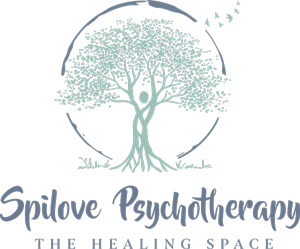Sometimes, it can be extremely difficult for a person to know if they are experiencing the effects of trauma.
Often, we might not consider our experiences to be traumatic, deciding this category is too intense to classify our own experiences. Other times, we might know we have experienced trauma, yet not feel comfortable talking to our family and friends about it. When we do not have anyone to talk to about the worst experiences of our lives, we might bottle up our emotions and disconnect from our support systems.
How can you know that you have experienced trauma?
If you are asking this question, odds are high that you have. In fact, traumatic experiences are unfortunately common. According to the National Council for Behavioral Health, roughly 70% of American adults have experienced a traumatic event at least once. Sometimes, realizing you are not alone in your experiences can bring you halfway to recovery.
Some of the most common symptoms of trauma are:
~ Intrusive thoughts of the event. If you find that you repeatedly remember the traumatic event, whether these memories are complete or partial, you have likely experienced trauma. These thoughts keep you in the past, and can even block your ability to focus on present concerns.
~ Nightmares. Do you find it difficult to sleep at night due to bad dreams that remind you of the event? These replicative dreams are similar to flashbacks, a hallmark symptom of trauma.
~ Avoidance of activities that trigger memories of the event. Do you find yourself avoiding places, activities, and/or people that remind you of the event? If so, you might be avoiding these to protect yourself from re-experiencing and flashbacks. While this type of protection has its place, you probably want to be able to return to certain activities you did before the traumatic event, to be able to enjoy life without keeping yourself from things you used to enjoy.
~ Social isolation and withdrawal. Maybe you are not just avoiding certain activities -- perhaps you are less inclined toward social situations at all, knowing that meeting new people or sometimes even talking to old friends will remind you of the event. Maybe you feel ashamed of having experienced the trauma, and don’t feel worthy of happiness and friendship as a result.
A trained trauma therapist can help provide you an environment where you feel safe enough to discuss traumatic occurrences that you have not felt comfortable expressing before.
Having this chance to explore traumatic events with your therapist can help unburden you of experiences you have been holding inside for years. This could be the first step toward feeling more at ease in the world around you, as it begins to feel less frightening.
While it might at first feel a bit scary to discuss trauma experiences with a stranger, this can actually be very empowering. Think of this as your first step toward enjoying your life again.
If you are experiencing symptoms of trauma or PTSD, reach out to us today to schedule with one of our trauma specialists. We have therapists with immediate availability in Philadelphia, on the Main Line and via telehealth to help you reduce trauma symptoms.
**We also have availability for reduced rate trauma counseling with our graduate level therapists.
Deborah Morkun, MFA, CYT
About the Author:
Deborah is a Masters student in the Community and Trauma Counseling program at Thomas Jefferson University. Deborah is a Certified Yoga Therapist and a published poet. Her therapeutic work is influenced by depth psychology, narrative therapy, somatics and the expressive arts. Besides Counseling, she also teaches as an English professor, and has a Master of Fine Arts in Writing and Poetics from Naropa University.





